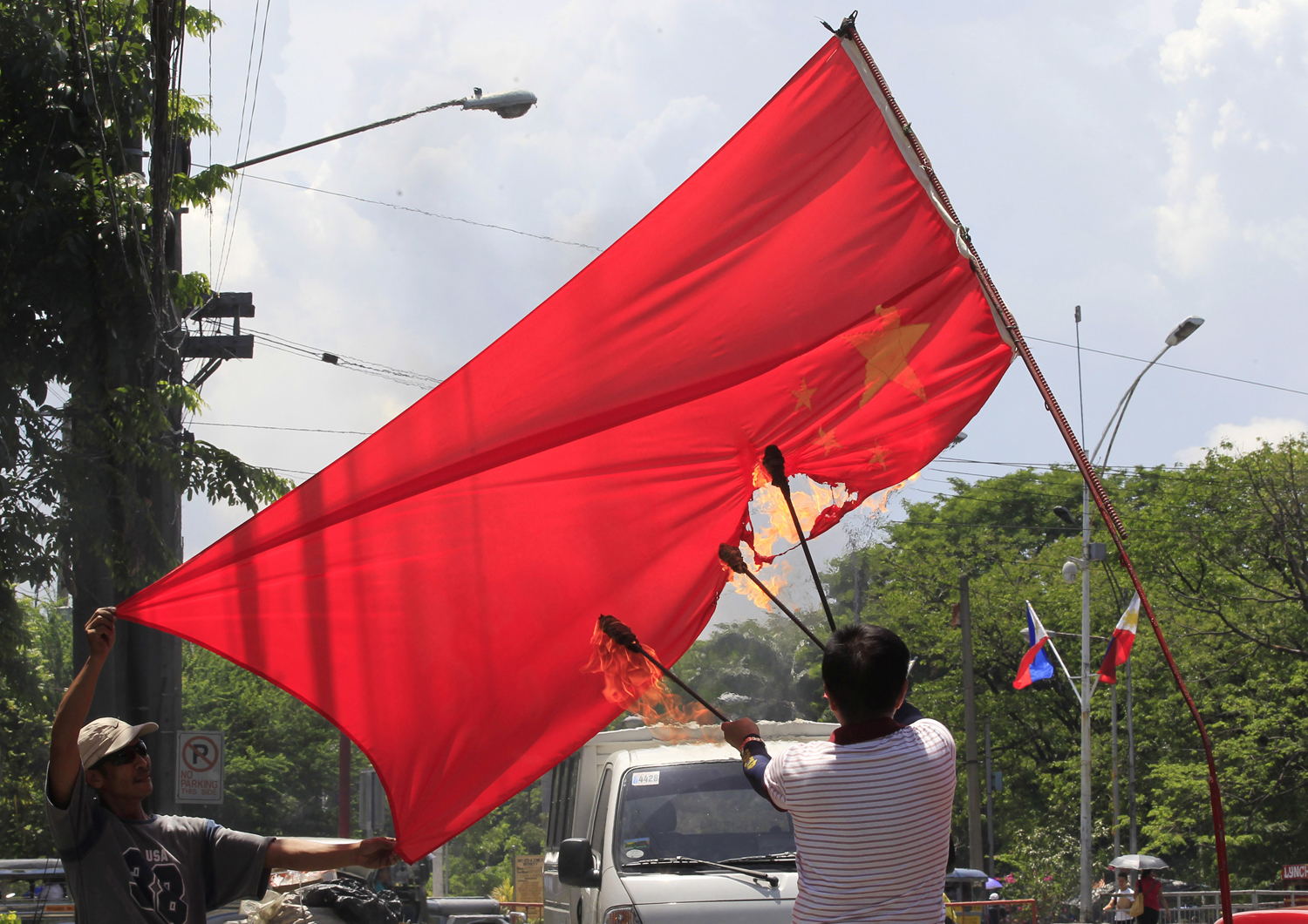
China’s neighbors fear the worst is yet to come.
Strong-arm tactics and tough talk coming from Beijing in the past year have succeeded in convincing neighboring countries that war may just be around the corner, according to a new poll released by the Pew Research Center.
“In all 11 Asian nations polled, roughly half or more say they are concerned that territorial disputes between China and its neighbors will lead to a military conflict,” read the report published by the Washington, D.C.-based think tank on Monday.
In Vietnam, where relations with Beijing have been exceptionally tense since a state-owned Chinese drilling platform moved into disputed waters near the Paracel Islands in early May, 84% of participants said they were “very” or “somewhat” concerned that territorial disputes could lead to war.
In Japan, which is embroiled with Beijing in disputes over vacant outcroppings in the East China Sea, 85% concurred.
Farther south in the Philippines, 93% of those polled feared the possibility of conflict with China. The archipelago nation has a number of ongoing disputes with China in the South China Sea and, much to Beijing’s chagrin, is pursuing international arbitration in a bid to settle those claims.
While many of the territorial disagreements with China have been ongoing for years, a number of incidents initiated by Beijing in the past nine months have led to increasingly strained ties across the region.
The perennially taut relationship between Tokyo and Beijing reached a flash point late last year when China unilaterally declared the establishment of an air-defense zone that covered the skies over disputed isles in the East China Sea.
Both Manila and Hanoi have meanwhile accused China of maintaining a large presence of paramilitary vessels, coast-guard ships and fishing boats in disputed maritime areas in a bid to edge rival nations out of contested waters. Experts following the region say the tactic must have had clearance from the upper echelons of power in Beijing.
“Xi Jinping and the central military commission as well as key figures in Zhongnanhai — they took a calculated risk,” Alexander Neill, Shangri-La Dialogue Senior Fellow with the International Institute for Strategic Studies’ Asia office, tells TIME. “China is testing the tensile strength of the sort of hub-and-spokes alliance system in the region.”
A majority of the Filipinos, Japanese, Vietnamese and South Koreans surveyed considered China as their nation’s top threat and the U.S. as their nation’s most important ally, according to Pew.
Only Pakistani and Malaysian respondents named the U.S. as their top foe and saw China as their biggest ally. (Indonesia was the lone country where respondents named the U.S. as both their biggest threat and No. 1 partner.)
The publication of the Pew poll comes after Washington has upped both economic and military cooperation with its Asian allies and fostered relations with former foe Vietnam to counter China’s increasingly brazen moves in the Asia-Pacific. Beijing has not responded kindly.
“What we seem to be seeing is increasing polarization in Washington and in Beijing,” says Neill. “The Sino-U.S. relationship is going through a rocky period.”
Last week, the U.S. Senate passed a resolution calling on China to avoid engaging in behavior that would “destabilize the Asia-Pacific region” and to refrain from enforcing its air-defense zone.
But Beijing does not appear to be interested in backing down. An editorial published in the state-linked Global Times on Monday fired back at Washington.
“[China] has the right to safeguard its sovereignty and it has no intention to go to war,” read the editorial. “China will not make trouble, but equally is unafraid of any trouble.”
More Must-Reads from TIME
- Inside Elon Musk’s War on Washington
- Meet the 2025 Women of the Year
- The Harsh Truth About Disability Inclusion
- Why Do More Young Adults Have Cancer?
- Colman Domingo Leads With Radical Love
- How to Get Better at Doing Things Alone
- Cecily Strong on Goober the Clown
- Column: The Rise of America’s Broligarchy
Contact us at letters@time.com